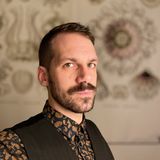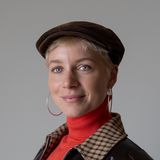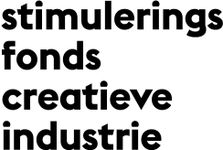Environment, social justice, economy – it’s becoming clear that our dominant systems are broken. In her 3-month DCFA Fellowship, Singapore-based urbanist Sarah Ichioka dives deeper into the possibilities for systemic change. What promising alternative systems and regenerative practices are already emerging around the world? And who is taking the first steps towards these essential changes?
In the last part of her DCFA Fellowship, Sarah Ichioka is here in person! We reflect on the lessons learned and dive into which regenerative initiatives and programmes are already underway on the ground in the Netherlands, and how these connect with wider movements towards the restoration of planetary health. How can we each contribute?

About the DCFA Fellow
Sarah Mineko Ichioka is an urbanist, strategist, curator, and writer. She leads Desire Lines , a strategic consultancy for environmental, cultural, and social-impact initiatives and organizations. Her latest book, Flourish: Design Paradigms for Our Planetary Emergency , co-authored with Michael Pawlyn, proposes a bold set of regenerative design principles for addressing our compound environmental and social crises. In previous roles Sarah has explored the intersections of cities, society, and ecology within leading international institutions of culture, policy, and research, including as Director of The Architecture Foundation (UK) and Co-Director of the London Festival of Architecture (both from 2008- 2014 ).
Watch Sarah’s introduction of her DCFA Fellowship on Regenerative Design below!
More about the speakers
Quint Verschuren is the co-founder of Flip the City , a fresh start-up on a mission to make cities greener and richer in biodiversity. Using their circular duckweed tiles, Flip the City is making it easy for everyone to do their part for biodiversity in the Netherlands. Alongside Flip, Quint is also pursuing a master’s degree in biotechnology & biochemistry, with a focus on how science functions in society. He is fascinated by biobased designs and is currently working on developing a brand-new bioplastic made from duckweed.
Dr. Marian Stuiver is the head of Green Cities, Wageningen University and Research and author of the book ‘The Symbiotic City, voices of nature in urban transformations’. They specialise in sustainable urbanization, green growth and inclusiveness. In ‘The Symbiotic City’, Marian describes the need to transform cities by re-embedding them in soil, water and living organisms. The book offers practical tools for urban planners, architects, local policy makers and the construction and real estate sector
Selçuk Balamir is a designer and organiser working on postcapitalist politics, commoning practices and climate justice campaigns. He co-developed creative-strategic frameworks for disobedient action campaigns (Climate Games, Shell Must Fall). He co-initiated social housing cooperatives (NieuwLand, de Nieuwe Meent). His PhD in Cultural Analysis is on postcapitalist design. He was the 2022 Artist in Residence at the Amsterdam Academy of Architecture, and currently teaches New Earth at Willem de Kooning Academy.
Juneal Holder is a wordsmith and sociologist with a specialization in social inequalities. Juneal’s main intentions are to help, educate and inspire people with both his academic knowledge and spiritual wisdom. He hones into his spiritual gifts as an empath to capture vibrations and uses his analytical mind to address social phenomena as well. He transmutes his observations, analyses, and energy he senses into poetry, blogs, and critical pieces. Juneal publishes his works on his blog JunealHolder.blog
About Designing Cities for All: RE generation
Over the past two years of Designing Cities for All (DCFA), we’ve learned about exclusion by design and the (re)design of inclusive cities. Along the journey, a certain question kept popping up: what exactly does ‘for all’ entail? After focusing mostly on the ‘who’ over the past two years, DCFA is rebooting as Designing Cities for All: RE-generation . This way around, the series is also incorporating the ‘what’ by looking through the fresh lens of regenerative design . This emerging field might very well be a promising answer to the challenges of our time, as it focuses on the design of products, services, systems and processes that lead to both social and ecological recovery and that keep the systems healthy.














